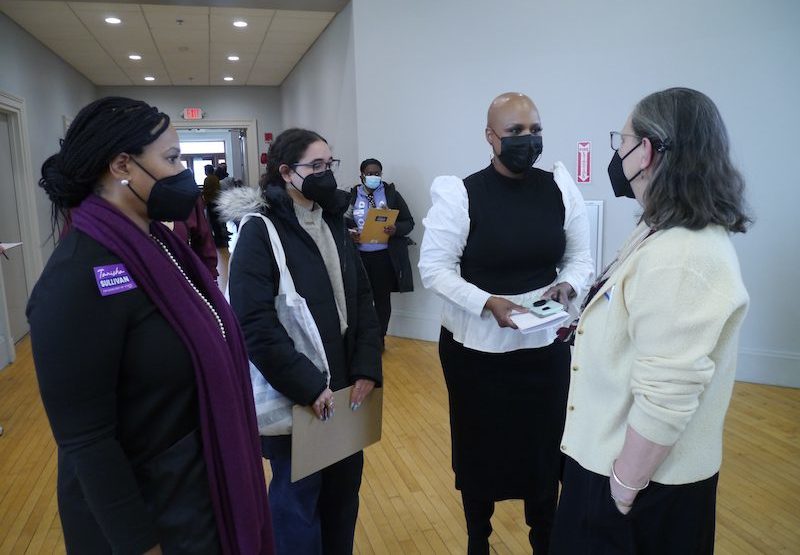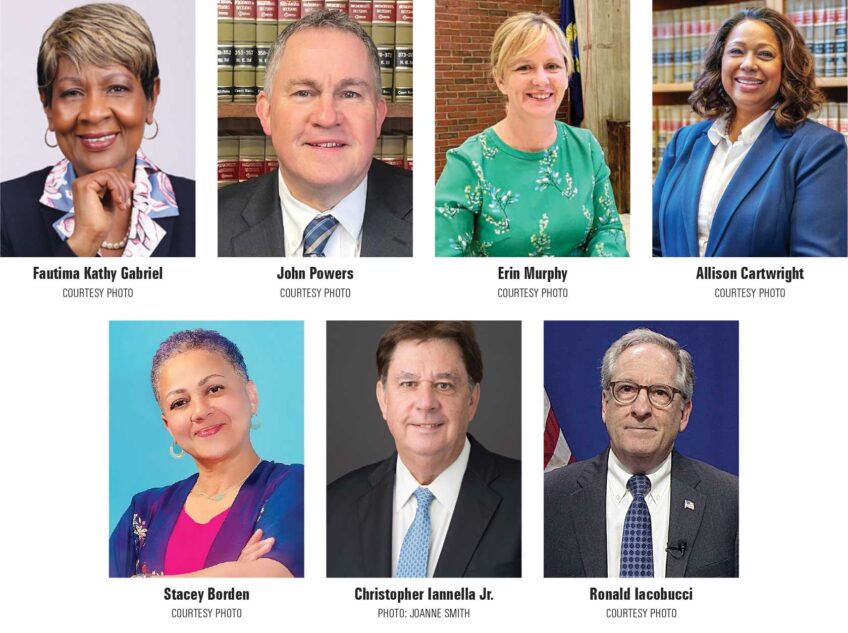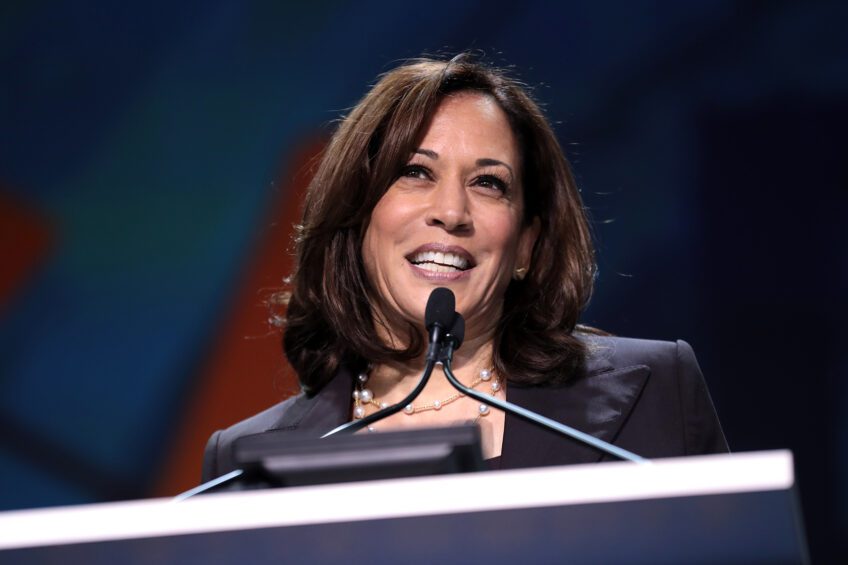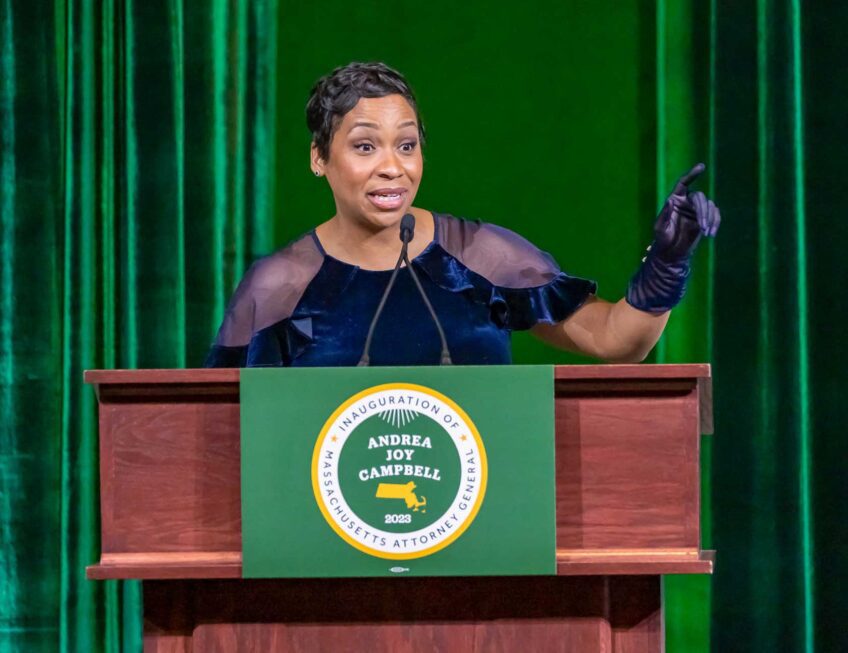A grassroots resurgence in ward caucuses
Boston ward committees embrace open democratic processes

Up till last week Tanisha Sullivan, a candidate for Massachusetts secretary of state, had already crisscrossed Massachusetts several times reaching out to Democratic Party insiders at ward caucuses.
“I’ve lost count,” she said, speaking in the lobby of the Hyde Park municipal building, where the Ward 18 caucus was underway. “I’ve been to Pittsfield, to the Cape, the South Shore — literally all over the commonwealth.”
The caucuses are held across the state between Feb. 4 and March 12, but on Saturday, more than 90 caucuses were held statewide.
Through careful planning and the magic of Zoom, Sullivan hit Ward 18, Zoomed into Worcester before heading to Watertown for an in-person caucus appearance, and then made virtual appearances in Spencer, Somerville, Cambridge, Salem and Franklin.
Mayor Michelle Wu, who won’t appear on the ballot for another four years, also made the rounds, though she only has 22 ward committees to visit this year.
“It’s a joy to do caucuses,” she said. “It’s so much fun to be in-person.”
Wu joined the Ward 18 caucus after popping in on the Roxbury-based Ward 12 virtual caucus and before heading to Ward 1 in East Boston and making virtual appearances at Wards 13, 14, 19, 21 and 22.
While the stakes are low for Wu, for Sullivan and other candidates for statewide office the Democratic caucuses are a strategic necessity as they seek to secure support from delegates to the party’s state convention, where they need at least 15% of the vote to secure a slot on the Democratic primary ballot.
They’re also an important opportunity for candidates for constitutional offices to make an impression on grassroots party activists. These activists could prove instrumental in assembling the statewide support network necessary to secure the million-plus votes needed to win. This year there are contested races for governor, secretary of state, auditor and attorney general.
Ward 18, which includes all of Hyde Park and part of Roslindale, was in the crosshairs of many candidates. It has the greatest delegate yield of any ward or town Democratic committee — 54 delegates and eight alternates. The allocation of delegates to committees is not based on population or the number of votes in a ward, town or city, but rather on the political acumen of the elected officials, ward bosses and other political players in the ward.
Ward 18 provides an interesting window into the changing racial and political dynamics in Boston. For more than 20 years, the ward was controlled by former Mayor Thomas Menino and his political allies. As the Hyde Park and Roslindale neighborhoods that make up the ward became more diverse, with African American, Haitian American and Latino people moving there in recent decades, the caucus remained for some time under the control of a predominantly white group of elected officials and city workers.
During those decades, Black and Latino activists and white progressives who sought seats on the committee or sought to become delegates to the state convention were unable to do so without the blessing of Menino or his people. Although a majority of Black voters in 2006 supported Deval Patrick over former Attorney General Tom Riley, Menino’s delegate votes from Ward 18 and the other Boston wards he controlled at that year’s convention went to Reilly, whom he endorsed.
In 2020, after years of unsuccessful attempts, a coalition of progressives wrested control of Ward 18 from its longstanding leadership, pledging a more open, transparent and representative process for electing delegates.
In past years, slates of delegates were decided on by caucus members before the annual meeting, saving the political insiders the discomfort of a public contested vote.
In the newly constituted Ward 18 caucus, there are no more slates, noted member Jonathan Rodrigues.
“We want to make sure the delegates are representative of the ward,” Rodrigues said. “Almost everyone who is running this year will get a seat.”
The same openness seen in Ward 18 is playing out across the city, as Wu so far has not sought to consolidate political power in ward committees. Menino and Walsh converted their campaign organizations into political machines, often leaning on city employees to maintain control over ward committees, ensuring a share of delegates they could allot to their preferred statewide candidates. Wu, on the other hand, said she held a training in January for her campaign volunteers and staff on the delegate process, but has not sought control over any committees.
“I haven’t endorsed any statewide candidates at this point,” Wu said Saturday. “My goal is to make sure people are engaged.”
Facing less pressure from elected officials, ward committees appear to have become more open. In neighboring Ward 20, which includes all of West Roxbury, members of the group West Roxbury/Roslindale Progressives occupy nearly half of the seats.
Although some state representatives exercise control over their local committees, no single elected official in Boston controls a major block of votes as large as Menino did. Thus, direct appeals to the party grassroots are more important than ever this year.
Attorney General Maura Healey, who is widely seen as the leading Democratic candidate for governor, made a direct appeal to the people-of-color-led Ward 18 caucus via Zoom.
“I will be the most aggressive governor in the country when it comes to addressing racial disparities,” she said. “This has been my life’s work, and will continue to be as governor,” she said.
Among those making an in-person pitch for votes was state Rep. Tami Gouveia, a candidate for lieutenant governor; interim Suffolk County District Attorney Kevin Hayden; and District 5 City Councilor Ricardo Arroyo, who is also running for the DA seat.
Former District 4 Councilor Andrea Campbell, who is running for the attorney general seat Healey is vacating, made Ward 18 one of the 20 caucuses she visited Saturday.
Though leading in early polls and in fundraising — she raised more than $330,000 in her first month of campaigning — Campbell appears unwilling to take for granted the support of Boston delegates.
In a three-minute pitch via Zoom, Campbell detailed her commitment to using the attorney general seat to address racial disparities and bring transparency and accountability to public safety agencies.
“I hope to earn your support during this caucus season and your vote at the convention and in September,” she said, noting that at-large Councilor Ruthzee Louijeune, also in attendance at the caucus, is serving as her surrogate at the Ward 18 caucus.
Ward 18 remains a political powerhouse. It now counts among its residents Wu, U.S. Rep. Ayanna Pressley, Suffolk County Sheriff Steve Tompkins, state reps. Brandy Fluker Oakley and Rob Consalvo, Louijeune, District 5 Councilor and Suffolk County DA Arroyo and Sullivan, who currently heads the Boston Branch of the NAACP.
While many of the office-seekers sit on the committee, each of them still has to ask committee members for support, whether as a delegate, as a campaign volunteer or as a voter.
Committee member Priscilla Flint Banks made that point clear when she opened the meeting.
“We are the people,” she announced, “and we have the power.”







